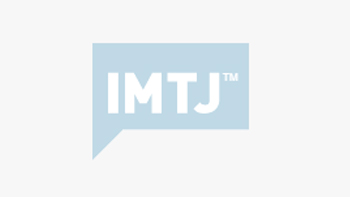A significant proportion of medical tourism and medical travel is driven by people seeking established and proven treatments in countries where the cost of the treatment or operation is much lower than in their home country.
A significant proportion of medical tourism and medical travel is driven by people seeking established and proven treatments in countries where the cost of the treatment or operation is much lower than in their home country. Within this segment of the market, the focus of patient safety is upon the hospital, clinic or doctor who is carrying out the treatment. Can the patient be confident that the healthcare provider has the necessary expertise and experience to carry out the procedure? The question… “Does this treatment actually work?” does not arise.
For proven treatments, the hospitals, clinics and doctors (and medical tourism facilitators) can reassure the patient by providing proof of qualifications, accreditations; experience and so on…. and in some cases may be prepared to provide data on clinical outcomes. Unfortunately, this is all too often lacking. Patients are often asked to take on trust the claims of the healthcare provider, particularly in those countries that do not have national standards and systems for the collection of comparative clinical outcome data or independent review and analysis. Even an international accreditation such as JCI is not a guarantee of quality, nor an assessment of how good a hospital actually is at delivering safe and successful treatments.
So, in established areas of medical travel such as cosmetic surgery, dental treatment and elective surgery there is still much work to be done to convince potential medical tourists that treatment abroad is a safe option (or at least as safe as within their home country.
Is it safe to travel for an “unproven and experimental” treatment?
A much bigger question on safety arises when we look at a different segment of the market. Patients who travel for treatment because a treatment option is available overseas but is not yet approved in their own country.
A controversial new treatment for multiple sclerosis is a case in point. Liberation therapy is a procedure in which veins are opened up in the neck with the aim of improving blood flow from the brain. Some doctors believe that liberation therapy for multiples sclerosis reduces the development of further MS attacks and in some cases can improve mobility but the treatment is yet to be supported by extensive clinical research, and has not been approved for use by any major national healthcare system. However, there have been successes. Ian Wilson, a British MS patient, relates how liberation therapy in Poland has changed his life.
And there have also been failures….
Last month, the death of a Canadian patient who travelled to Costa Rica for liberation therapy hit the headlines – Death of MS patient fuels debate over new treatment
“Doctors in Canada say that Mr. Mostic’s death is a cautionary tale for patients assessing an unproven and experimental treatment. While the procedure has yet to undergo clinical trials in Canada, multiple sclerosis patients have shelled out thousands of dollars for the procedure in countries such as India and Poland.”
Much of the work on liberation therapy (for CCSVI – Chronic Cerebo-Spinal Venus Insufficiency) has been conducted by Professor Paulo Zamboni in Italy. (View Professor Zamboni’s research paper on “Chronic cerebrospinal venous insufficiency in patients with multiple sclerosis” in the Journal of Neurology, Neurosurgery and Psychiatry). In a workshop on CCSVI in April this year, Professor Zamboni advocated this strategy
“… we are still at the stage where we need to understand if this type of treatment makes sense, with who and when, etc. … We can’t be like cowboys and try new things on other people’s skins before it was experimented safely, so I insisted that, if the treatment has to be done, they should be done by a group that have a program, with their proper neurologist and with a conservative regimen”
A tempting market
There are 2.5 million MS patients worldwide, a proportion of whom would travel and spend significant amounts of money to relieve their symptoms or to slow down the progress of the disease. The cost of the treatment is around $10,000 (7,500 euros). Let’s imagine that just 500 of the 2.5 million sufferers decide it’s worth spending $10,000 on the chance of a cure. That’s a $5 million market. Suppose, 5,000 (0.2% of sufferers) take the plunge… that’s a $50 million market.
Not surprisingly, various CCSVI providers have appeared around the world to capitalise on the potential demand. Here are a few examples:
- Private scan clinics in Germany and Belgium
- Apollo Hospitals in India
- Euromedic in Poland
- Hospital Clinica Biblica in Costa Rica
And medical tourism facilitators haven’t been slow to pursue the revenue opportunity either:
- Meditours in Canada
- SafeMedTrip in India
- Passport Medical in USA
In the world of stem cell treatment, we see a similar picture. But is it safe? Is it ethical? Is it driven purely by the potential cash returns?
And above all, is it in the best interests of the patient?








 ©2024 All rights reserved LaingBuisson
©2024 All rights reserved LaingBuisson 


